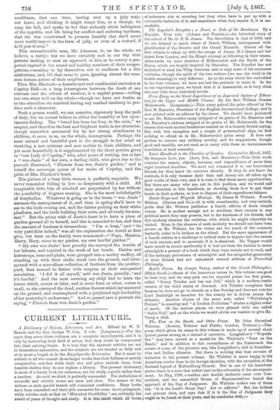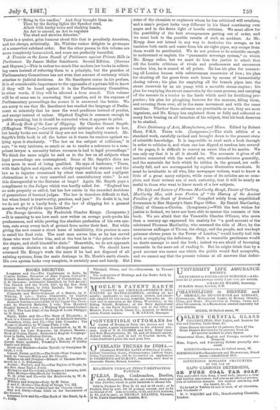poem which gives its name to this volume is made
up of several short lyrical pieces strung on a thread of narrative. Longfellow's "Wayside Inn" may have served as a model for Mr. Whittier's "Tent on the Beach," and in addition to this resemblance of the framework the scenes of some of the pictures are, like Longfellow's, laid in Scandina- vian and Italian climates. But there is nothing else that savours of
imitation in the present volume. Mr. Whittier is more happy in his
American stories than in his foreign sketches, with the exception of the. Zealand legend of Kallundborg Church. But in one of his American pieces there is a note that rather jars on the solemnity of the accompani- ment. In May, 1780, a sudden and fearful darkness came over Con- necticut, and the assembled House of Representatives feared the
approach of the Day of Judgment. Mr. Whittier makes one of them say, " It is the Lord's Great Day Let us adjourn." But the boldest one present rises, and says that if it is the Day of Judgment they ought to be found at their posts, and he concludes with,—
," Bring in the candles.' And they brought them in. Then by the flaring lights the Speaker read, Albeit with husky voice and shaking hands, An Act to amend, an Act to regulate The shad and alewive fisheries.
There is a quaint, grim humour about this that is peculiarly American, and too abrupt, artistically. Mr. Whittier rather delights in grotesque of a somewhat subdued order. But the other poems in this volume are more completely harmonized, and some are perfectly beautiful.































 Previous page
Previous page